Importance of the role to the Health Organization
The roles and functions of nurse professionals should be oriented on improving organizational processes (Roussel et al.,2009).
Sound evidence-based management advanced the overall quality of nursing administration and leadership (Scoble & Russell G, 2003).
Introduction of conceptualized practice provides greater opportunities for change and transformation.
- Successful functioning and roles influence:
- Effectiveness of techniques used in treating patients;
- Safety of services delivered to patients;
- Patient-oriented approach for creating a favorable environment;
- Development of a strong and extensive network aimed at improving cooperation between nurses;
- Quality of patient care with regard to cultural and social issues;
- Effective time management of daily operations.
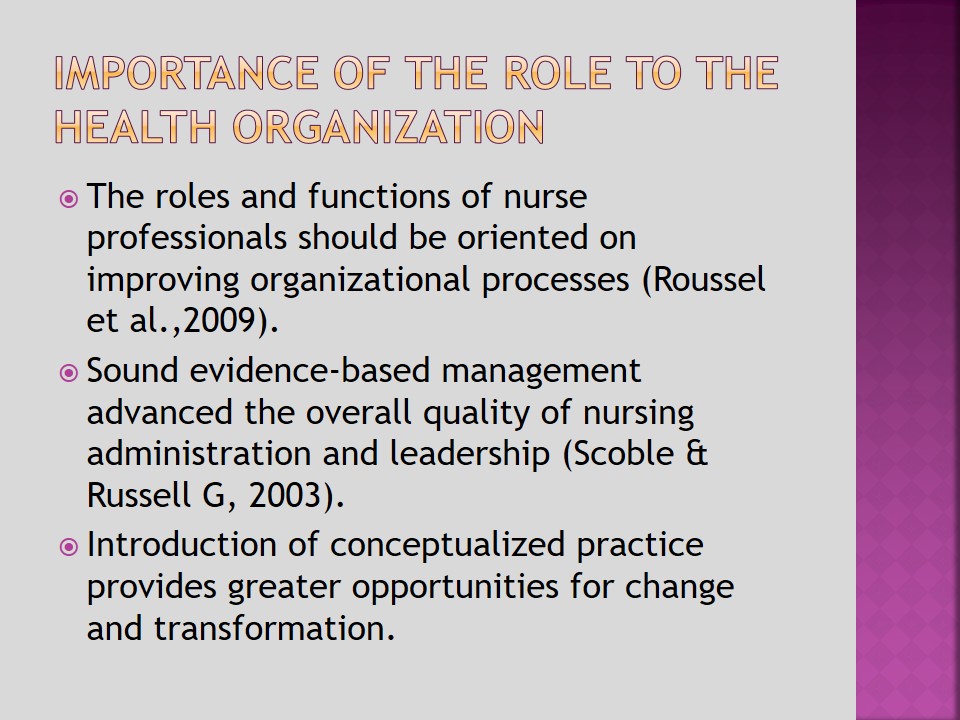
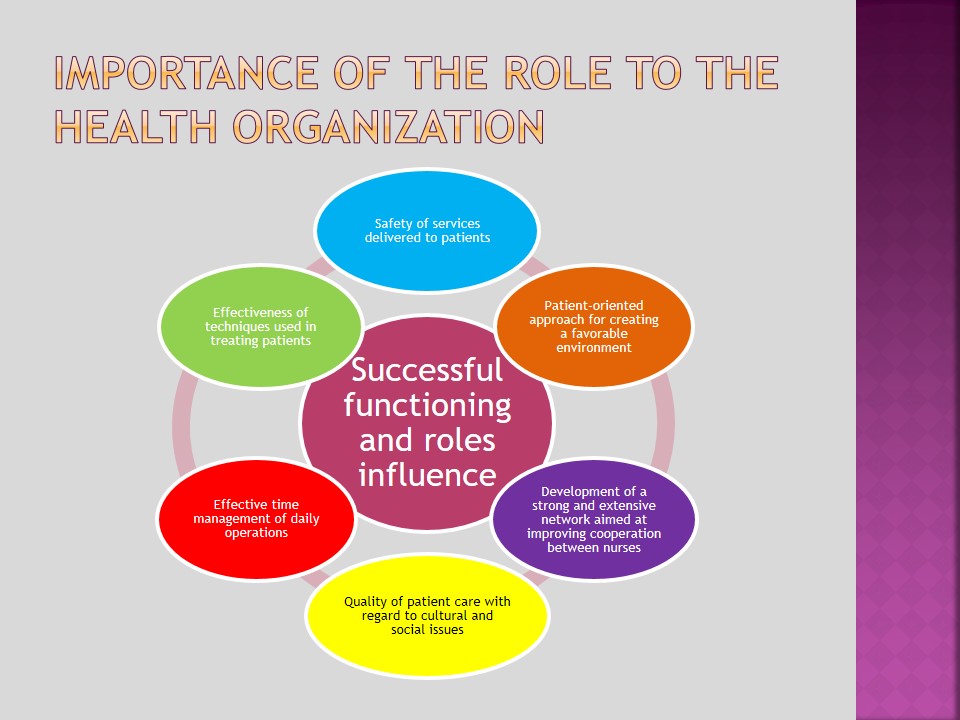
The effectiveness of the Individual in the role
Distinguishing between leadership and management is crucial for improving organizational process in a health care environment (Zaleznik, 2003).
Knowledge of leadership theories and concepts can help the individual achieve established goals in the workplace and advance the quality of care (Roussel et al., 2009).
The nurse administrator should realize his/her values, missions, and goals to implement corresponding strategies. In this respect, a patient-oriented approach and quality improvement are the pillars of successful management (Garvin et al., 2008).
- A good manager:
- is able to implement efficient intervention models;
- takes control of processes, regulations and procedures;
- operates within paradigms.
- A good leader:
- works out efficient plans for improving the quality of services;
- is engaged with underpinnings and reasons why a particular concepts is introduced;
- operates beyond the established paradigms.
There is a tangible differences between management and leadership in terms of controlling and monitoring processes, regulations and polices within the organization. In this respect, these spheres differentiate with regard to styles, paradigms, and modes used by nurse administrators. Specifically, management is more concerned with adhering to the already established norms and standards whereas leadership seek to identify the way through which those norms can be improved and advanced to introduce high quality and safety to a medical setting.
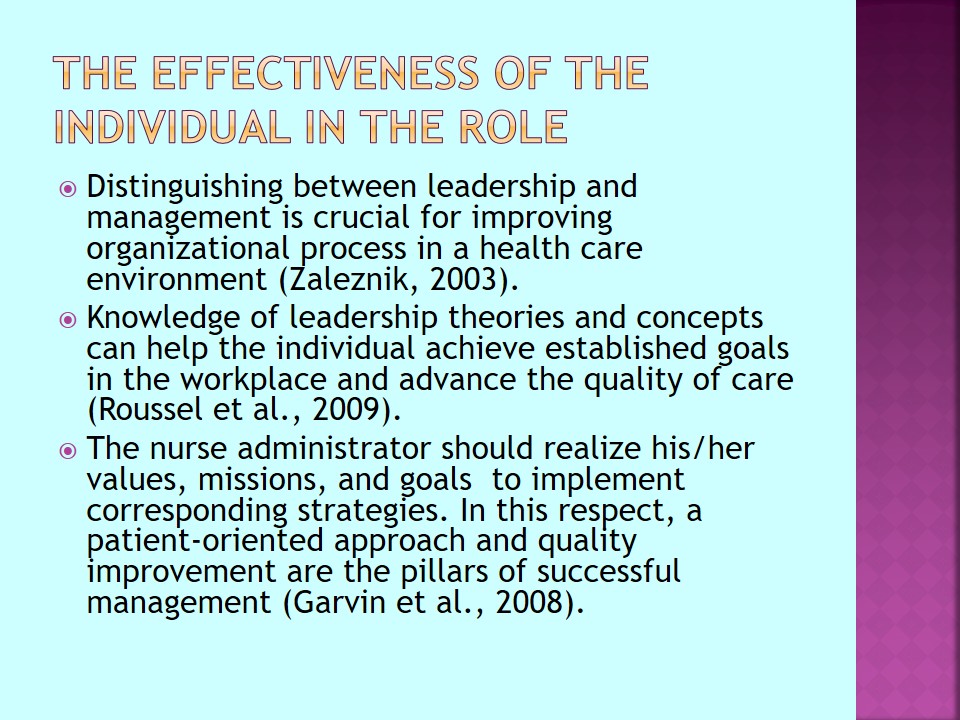
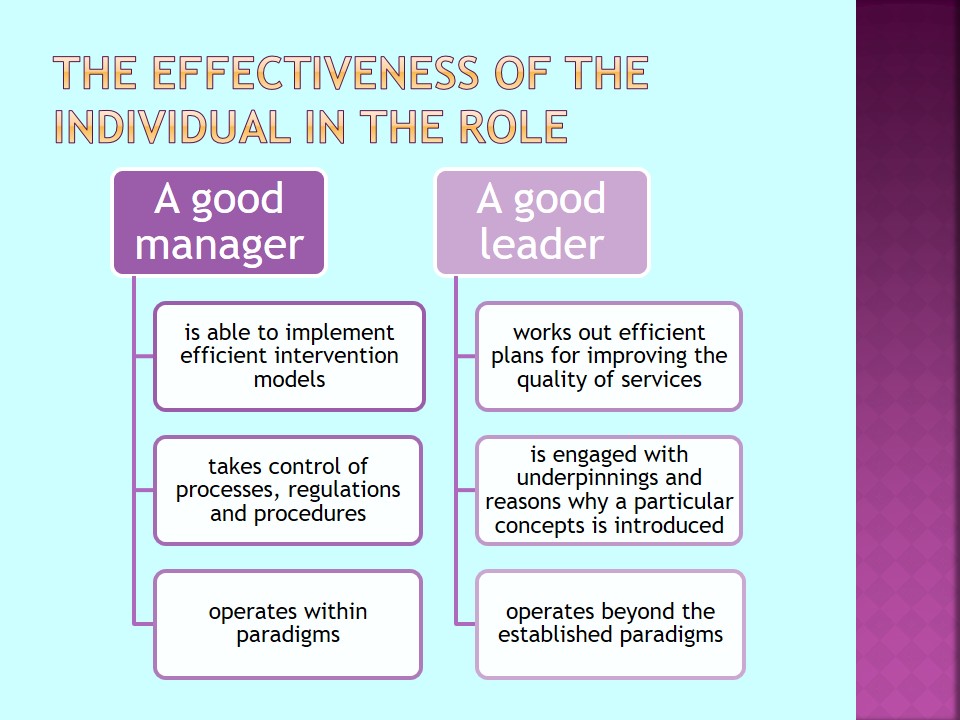
Learning Experience: Leadership vs. management with regard to professional practice
Leadership skills are crucial for enhancing , advancing, and innovating the quality of healthcare delivery (Zaleznik, 2003). Possessing a complex of communicational and diplomatic skills enable managers to take control activities and procedures held at hospital.
Managerial skills contribute greatly to establishing strict ethical, moral, and legal codes that should be followed by members of the organization (Roussel et al., 2009).
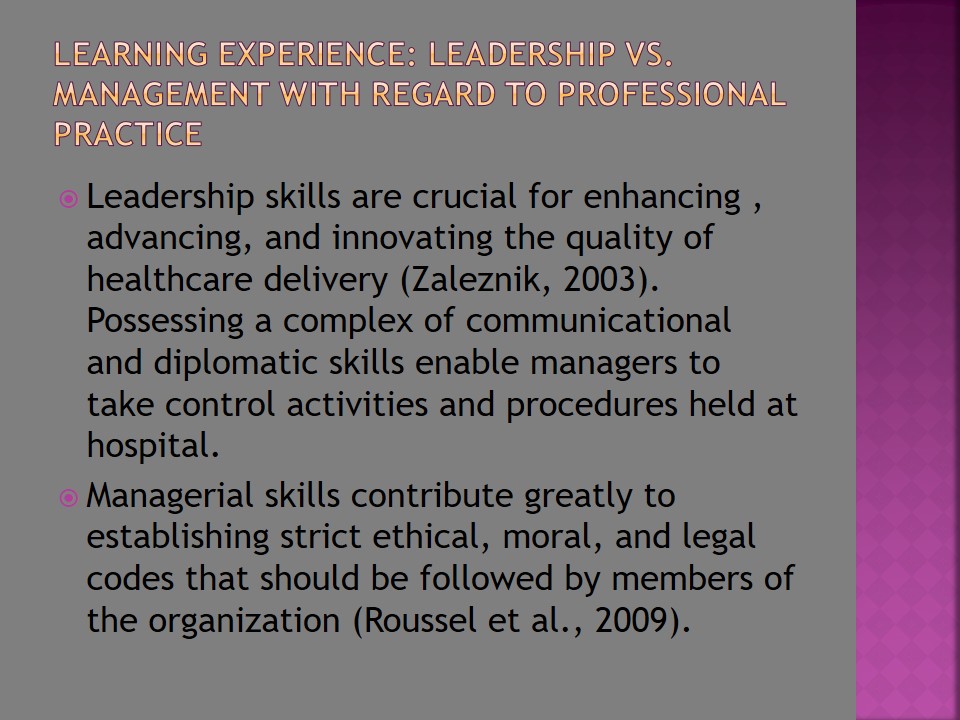
Learning experience: Organizational structure
- Self-regulation and self-governance are key factors driving the integration of effective organizational elements.
- Greater awareness of organizational structure makes nurse professionals face challenges and difficulties more effectively (Linder, 2005).
- Successful re-organization can be carried out with the emphasis placed on accountability and responsibility.
- Ability to resist critical situations and encounter unforeseen complications is the most important condition for introducing effective decision-making and problem-solving models to organizations (Coutu, 2003).
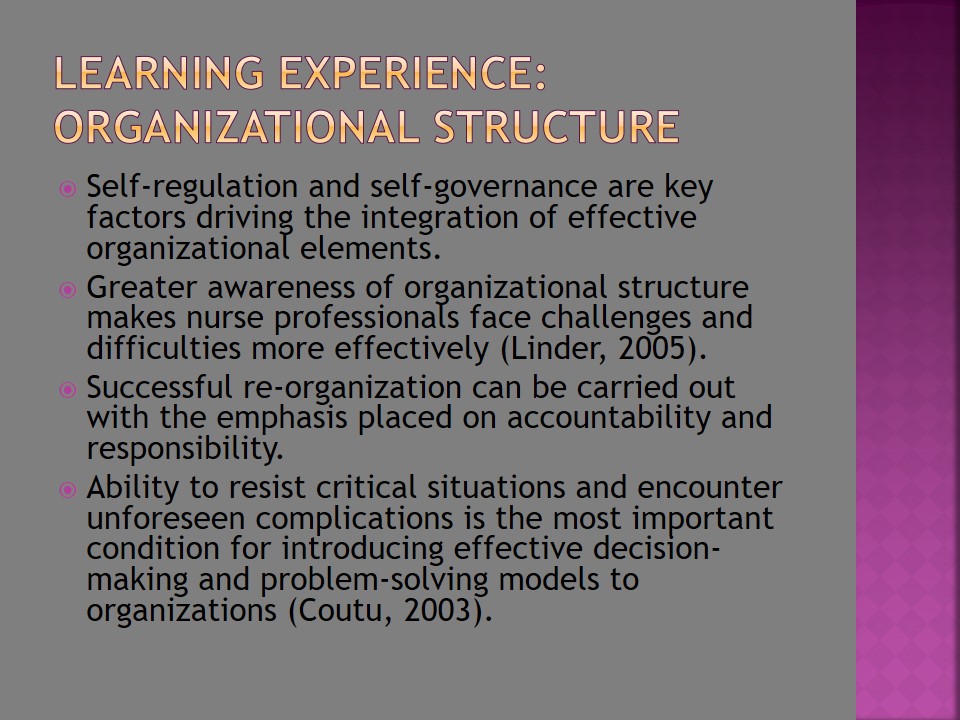
Learning Experience: Implementing change within the Organization
- Careful planning determines organizational directives and define objectives that are indispensible to organization’s success (Garvin et al., 2008);
- The nurse administrator should be aware of accurate goals and strategies to be implemented to enforce organization’s competitive edge (Pfeffer & Sutton, 2006);
- In order to be competent in the sphere of management and planning, a manager should gain experience in measuring and controlling the processes and activities performed within the organization (Pfeffer & Sutton, 2006);
- Such skills as leadership, ability to set the vision of an organization and coordinate the staff are the core for achieving success.
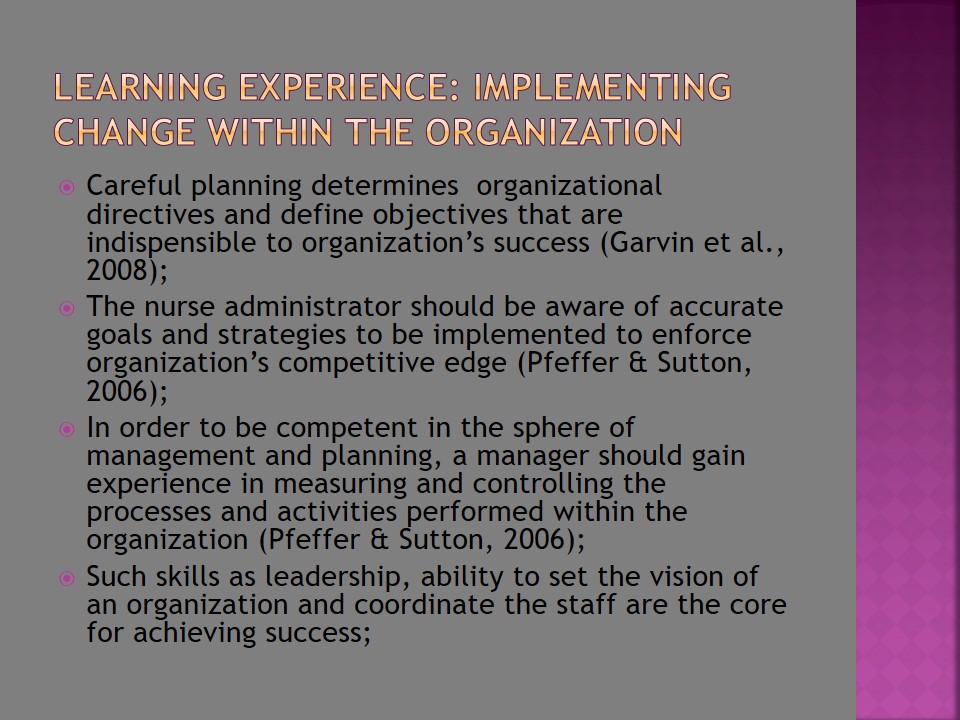
Learning Experience with regard to legal issues and regulations
- Risk management:
- Problem identification and analysis;
- Presentation of solutions and possible changes;
- Safety insurance:
- Trustworthiness, honesty, and integrity contribute to creating a safe environment;
- Safety and quality are two foundational values of medical organizations;
- Quality control and assurance:
- Accreditation seeks to evaluate the level of quality introductions to a health care setting;
- Readiness to introduce changes improving the quality.
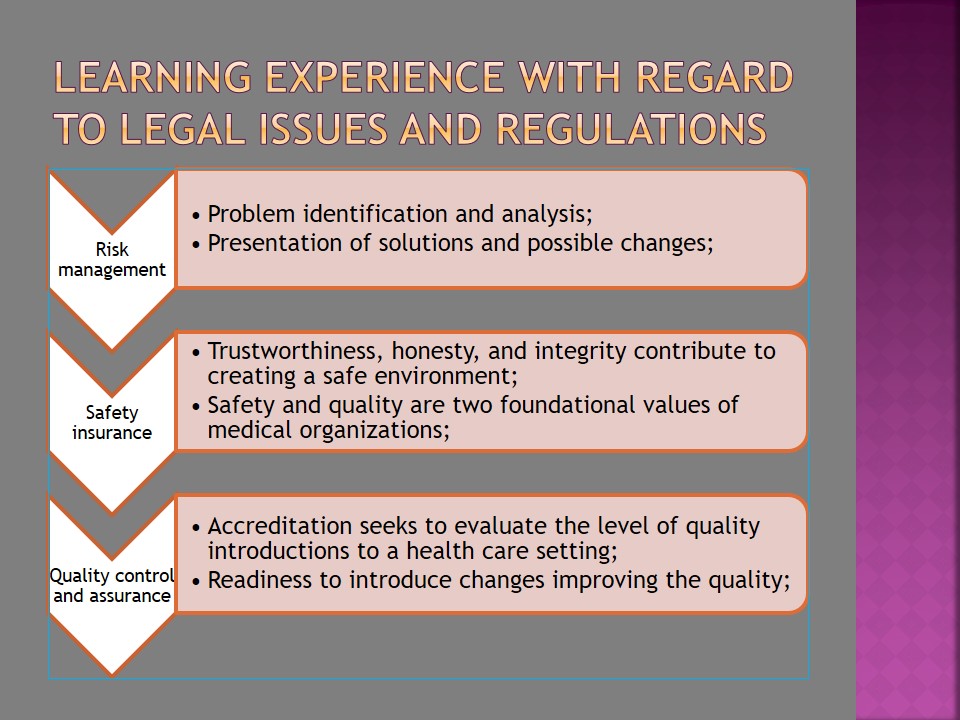
Learning experience: Quality management
- The implementation of a collaborative approach to a health care environment is beneficial in terms of quality improvement and management (Block and Sredl, 2006);
- Quality management is predetermined by the extent to which an organization is involved in specific training programs aimed at widening nurses’ competence and experience and managing difficult situations;
- The development of a strong working environment is the basic condition for building a high quality network introducing international standards and norms (Roussel et al., 2009);
- Introduction of transparent systems and deeper analysis of quality of work is the basis for organizational success.
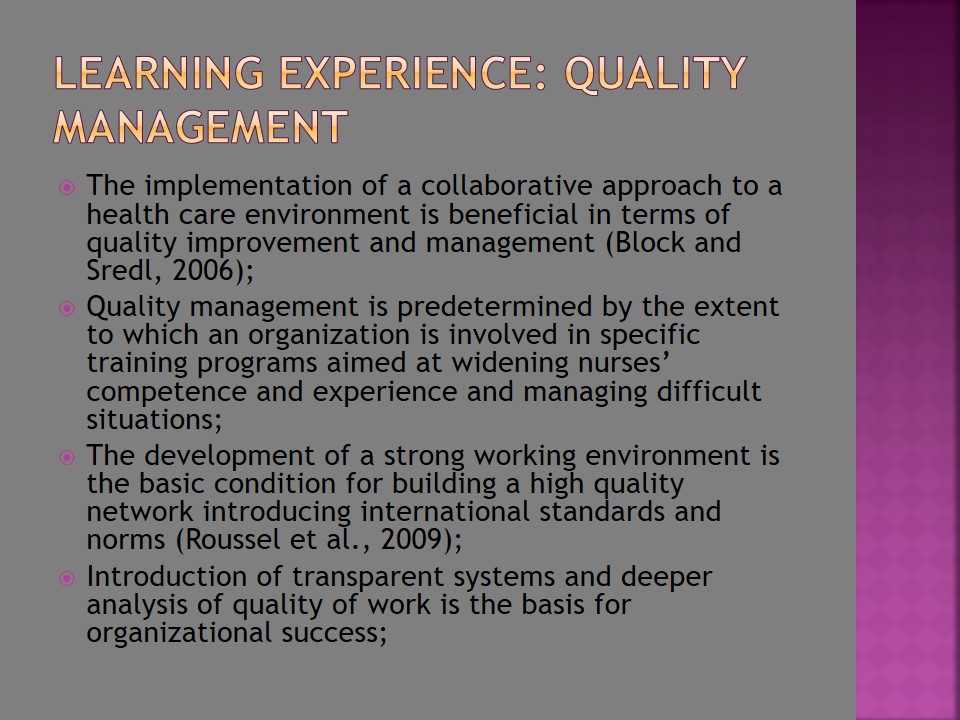
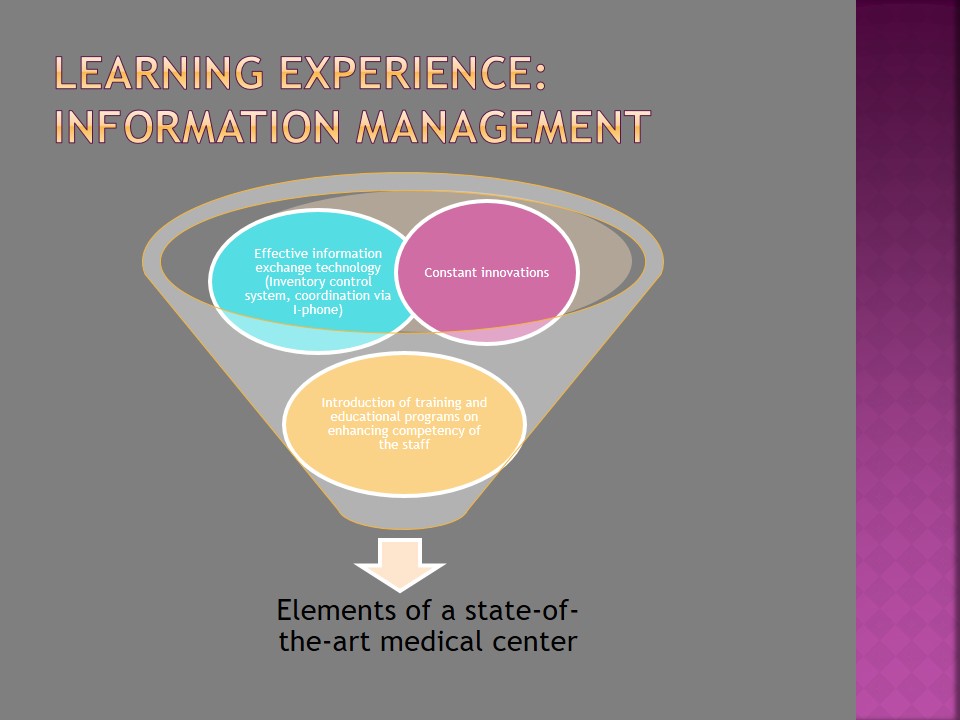
Reference List
Block, V., and Sredl, D. (2006). Nursing Education and Professional Practice: A Collaborative Approach to Enhance Retention. Journal for Nurses in Staff Development. 22(1), 23-28.
Coutu, D. L. (2003). Sense and reliability: A conversation with celebrated psychologist Karl E. Weick. Harvard Business Review, 81(4), 84-90.
Garvin, D. A., Edmondson, A. C., & Gino, F. (2008). Is yours a learning organization? Harvard Business Review, 86 (3), 109-116.
Pfeffer, J. & Sutton, R.I. (2006). Evidence-based management. Harvard Business Review, 84(1), 63-74.
Roussel, L., Swansburg, R. C., & Swansburg, R. J. (Eds.). (2009). Management and leadership for nurse administrators (5th ed.). Sudbury, MA: Jones and Bartlett Publishers.
Scoble, K. B., & Russell G. (2003). Vision 2020, part I: Profile of the future nurse leader. Journal of Nursing Administration, 33(6), 324-330.
Zaleznik, A. (2003). Managers and leaders: Are they different? Harvard Business Review, 18(3), 171-177.